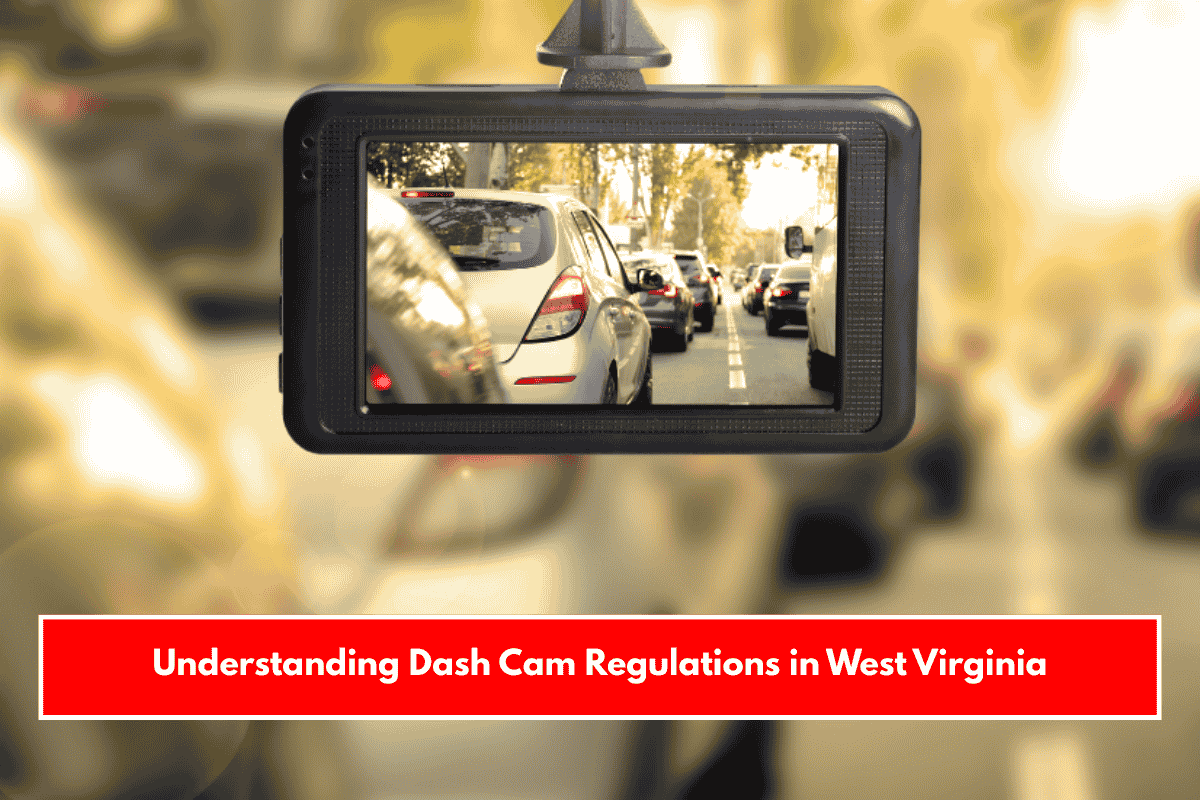Dash cameras (dash cams) are increasingly common in West Virginia, offering drivers valuable protection and evidence in the event of accidents or disputes. However, their use is governed by specific state laws. Understanding these regulations is crucial for legal compliance and to ensure any footage you capture is admissible in court.
Legality of Dash Cams in West Virginia
Dash cams are legal in West Virginia, but their installation and use are regulated primarily to prevent obstruction of the driver’s view. The relevant statute, WV Code § 17C-15-36, prohibits any nontransparent material-including dash cams-on the front windshield, side wings, or windows if it obstructs the driver’s clear view of the highway or intersecting highways.
Key Points:
- Legal to own and use: There is no law banning dash cams outright in West Virginia.
- Windshield restriction: You cannot mount a dash cam (or any nontransparent object) on the front windshield if it blocks your view.
- Dashboard mounting: Dash cams should be mounted on the dashboard or another location that does not obstruct the driver’s line of sight.
- Other windows: There are no specific restrictions against placing dash cams on other automobile windows, but the device must not impede the driver’s vision.
Proper Installation
To comply with West Virginia law:
- Do not place dash cams in the center or upper part of the windshield.
- Mount the device on the dashboard or in a location low enough that it does not interfere with your view of the road.
- Ensure the dash cam does not block any mirrors or essential controls.
Failure to follow these guidelines could result in a traffic violation for having an obstructed view.
Audio and Video Recording Laws
Audio Recording:
West Virginia is a one-party consent state. This means you can legally record audio as long as at least one party involved in the conversation consents to the recording-typically, this can be you, the driver. However:
- No criminal intent: The recording must not be made with criminal intent.
- Expectation of privacy: You cannot record people where they have a reasonable expectation of privacy (e.g., restrooms, dressing rooms).
Video Recording:
- Public spaces: Video recording is generally legal in public places, such as roads and highways.
- Private spaces: Recording in places where privacy is expected is illegal and can result in significant fines and criminal penalties.
Use of Dash Cam Footage in Court
Dash cam footage is admissible as evidence in West Virginia courts, especially in civil personal injury cases and insurance claims. The footage can help establish fault or support your version of events. However:
- Footage must be legally obtained: If the dash cam was installed in violation of state law (e.g., obstructing the view), the footage may be challenged or excluded.
- Footage can be used against you: If you were at fault, your own dash cam footage could be subpoenaed and used as evidence against you.
Privacy Considerations
- Inform passengers: While not strictly required, it is best practice to inform passengers that audio and video may be recorded, especially if your dash cam records inside the vehicle.
- Commercial vehicles: Employers must inform employees if driver-facing cameras are used, in compliance with federal and state privacy and wiretapping laws.
West Virginia Dash Cam Rules
| Aspect | Regulation |
|---|---|
| Windshield Mounting | Illegal if it obstructs the driver’s view |
| Dashboard Mounting | Legal, as long as it does not obstruct the driver’s view |
| Audio Recording | One-party consent required |
| Video Recording | Legal in public spaces; illegal in private spaces |
| Court Admissibility | Usually admissible if footage is legally obtained |
| Passenger Notification | Advised, especially for audio recording |
Dash cams are a valuable tool for West Virginia drivers, but must be installed and used in compliance with state laws. Mount your dash cam on the dashboard or other non-obstructive location, respect privacy laws, and be aware that footage can be used both for and against you in legal proceedings. For complex situations or if your footage is involved in a lawsuit, consult with a legal professional to ensure your rights and interests are protected.
Sources
- https://www.wvjusticelawyers.com/legal-advice/west-virginia-dashcam-laws/
- https://www.wvjusticelawyers.com/legal-advice/dash-cam-footage-be-used-in-court/
- https://matrackinc.com/dash-cam-laws-by-states/
- https://gpstrackit.com/blog/what-are-the-dashcam-regulations-in-each-state/
- https://surveillancesecure.com/west-virginia-audio-and-video-recording-legal-regulations/















